Eating Well for Mental Health
More than 15% of people experience mental health conditions such as depression or anxiety in their lifetime. Diet is one of the factors that impacts our mental health, and perhaps the factor we have the most control over. Research in this field is in fairly early stages however, and researchers are yet to discover specifics around whether it is particular dietary patterns (for example, the Mediterranean diet) or nutrients on their own (for example, Omega 3 fatty acids) are most beneficial in managing mental health conditions.
In this post, we’ll discuss the impact of what we eat on our mental health.
Micronutrients and Mental Health
Research has found that micronutrients including vitamin D, zinc, magnesium, selenium, iron, folate and some B vitamins are low in those who suffer from depression. Having low levels of these micronutrients results in decreased serotonin production, our mood stabilising hormone, and consequently increases risk of depression. This relationship indicates that adversely, by increasing our intake of these micronutrients, we can attempt to boost serotonin production and consequently reduce our risk of depression.
Omega 3s have fast become a hero nutrient for managing diagnosed depressive symptoms, with research determining a positive impact on mood and a reduction in stress and anxiety within three to six months of intentional consumption. The specific dosage required to produce this impact has not yet been defined, rather the association was prevalent in those who consume fish regularly, 1-2 serves per week, when compared with those who don’t.
If you don’t already eat fish on a regular basis, try adding in one fish-based meal to your diet each week.
Diet and Mental Health
Regular consumption of sugars, snack foods, takeaway foods, fried and high-energy foods has become a norm in Western societies, whilst the consumption of nutrient-rich foods is diminishing. This “Western Style Diet” causes inflammation in the body, increasing oxidative stress and consequently depressive symptoms, particularly prevalent in adolescents and young adults.
Failure to consume enough nutrient-dense foods such as fruits, vegetables, wholegrain and fish can lead to insufficiencies in nutrients, antioxidants and fibre. Insufficiencies in required nutrients can have a detrimental impact on our immune system, gut microbiota, important aspects of brain function and other aspects of mental and physical health. Furthermore, regular consumption of saturated fats and refined sugars have a potent negative impact on brain proteins that are essential for protecting the brain and promoting growth of new cells. They also affect your stress response, which is important in regulating your mood and preventing symptoms of depression and anxiety.
Our bodies are highly adaptive, and often we don't realise how much our diet is negatively impacting our health and day-to-day life. Your body may be used to and adjusted to consuming foods associated with the “Western Style Diet”. If you were to reduce consumption of such foods, you’d most likely find a sudden and dramatic increase in your energy levels and consequently elevated mood. If you were then to return to a “Western Style” way of eating you would feel sluggish, fatigued, nauseas and moody until your body readjusted to eating these heavier, fatter foods again.
If you’re someone who regularly consumes foods associated with the “Western Style Diet”, it can be tricky and confusing to know where to start with healthier eating. Fortunately, there are some useful diets that can guide you in incorporating the range of foods necessary to promote better mental health and enable optimum body function.
The Mediterranean Diet and Mental Health
The Mediterranean diet is popular with health conscious eaters, focusing on foods high in antioxidants, fibre and pre and probiotics, such as:
Vegetables, fruits and wholegrains
Healthy fats including nuts, seeds and olive oil
Fish, eggs and a moderate amount of dairy
Very little white and red meat
Red wine in moderation
These foods are helpful in increasing beneficial gut bacteria, decreasing bad bacteria that causes inflammation, and increasing serotonin production. Consequently, a diet rich in these foods has been linked to lower incidence of depression and anxiety, as well as an enhanced ability to effectively manage poor mental health symptoms.
Many modern diets are overly restrictive and consequently not maintainable in the long term. The Mediterranean Diet is popular as it incorporates a wide range of nutrient-rich foods that adequately address your body’s needs for optimum function. Eating in this way most of the time will make you healthier, have more energy and feel better both mentally and physically.
Eating Well For Mental Health
Although there are diets such as the Mediterranean diet that act as useful guides for eating to promote better mental health and general wellbeing, everyone is different. You may have specific food allergies, intolerances or dietary preferences (i.e. veganism, vegetarian, pescatarian) that impact your ability to follow mainstream healthy diets, which may cause further stress or negatively impact your mental health.
If you are struggling with finding a diet that is working well for your unique needs, we recommend speaking to a Dietitian. A Dietitian is the best trained health professional to assess your dietary requirements and tailor a individual plan suitable to you.
If you’d like to book in with one of our Dietitians to discuss how your diet may be negatively impacting your mental health, or how you may improve your diet, you can do so at the button below.


